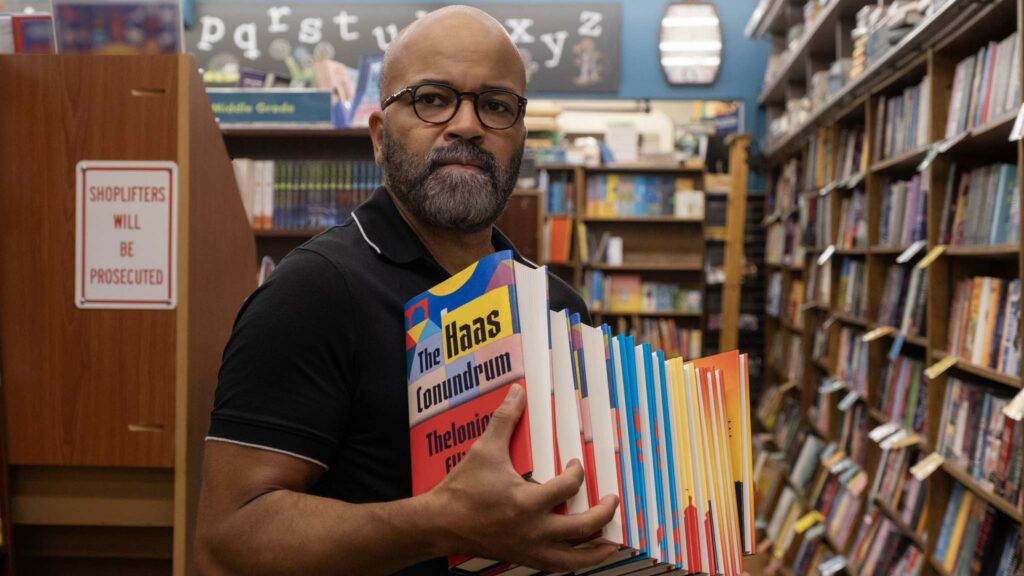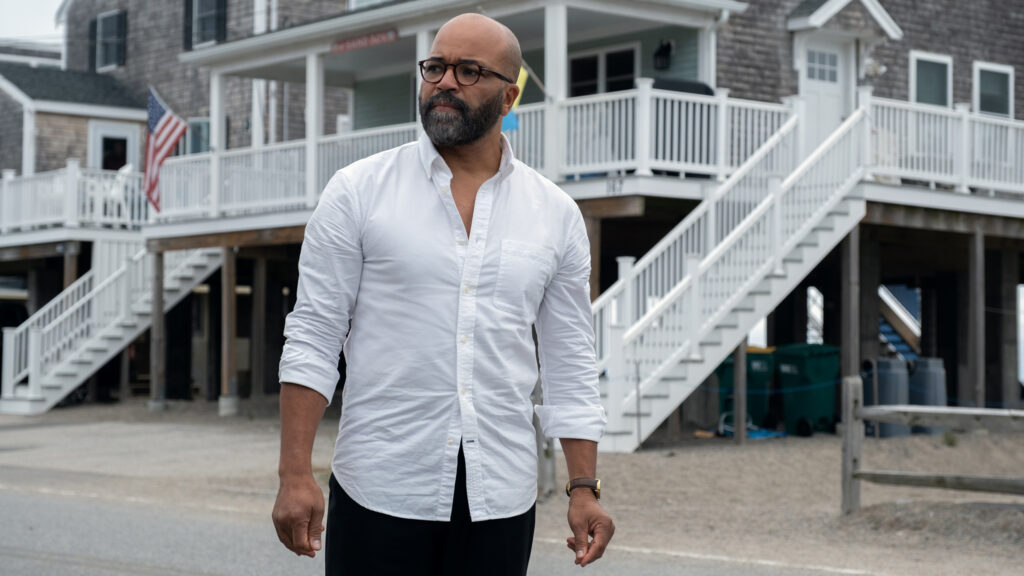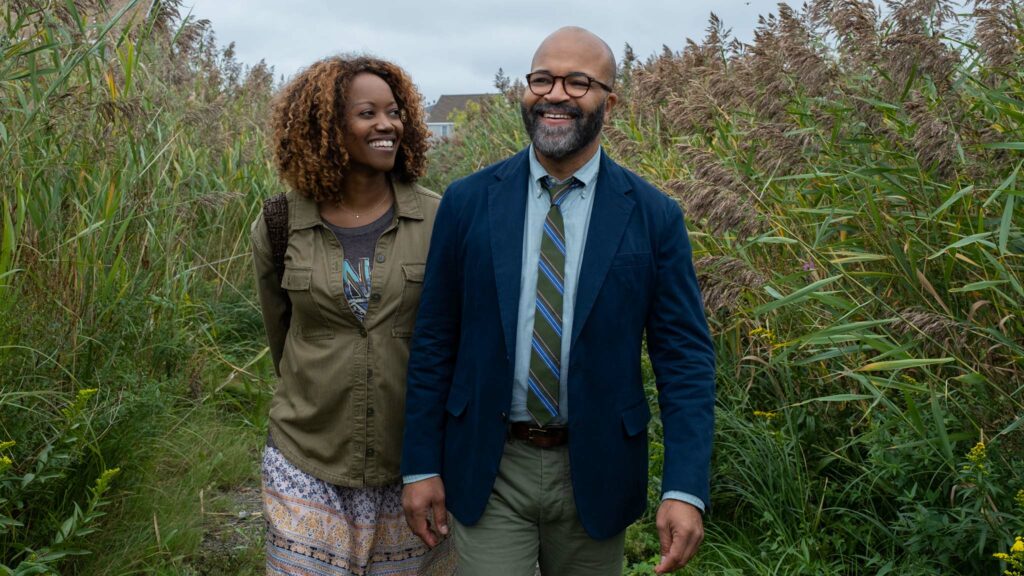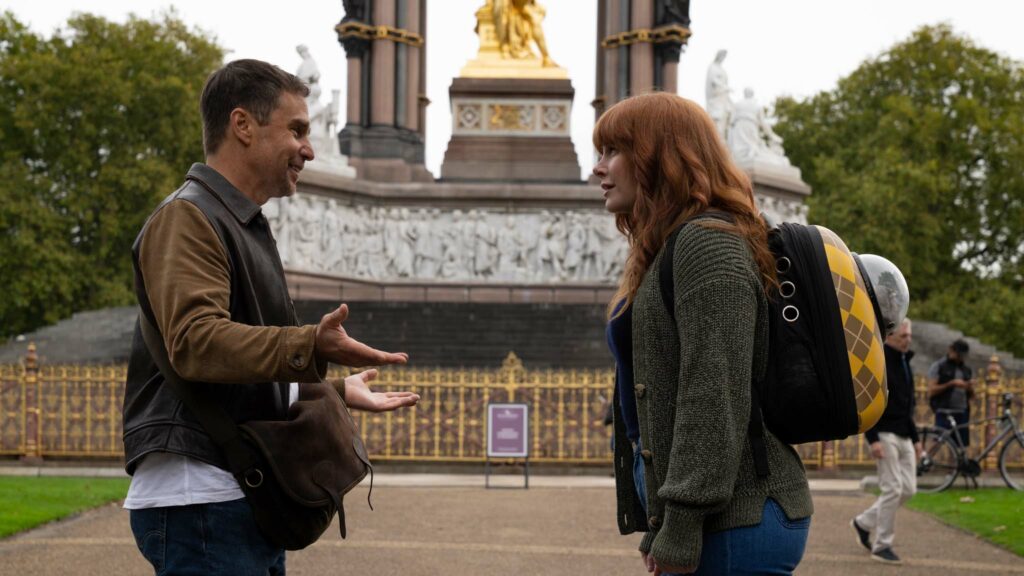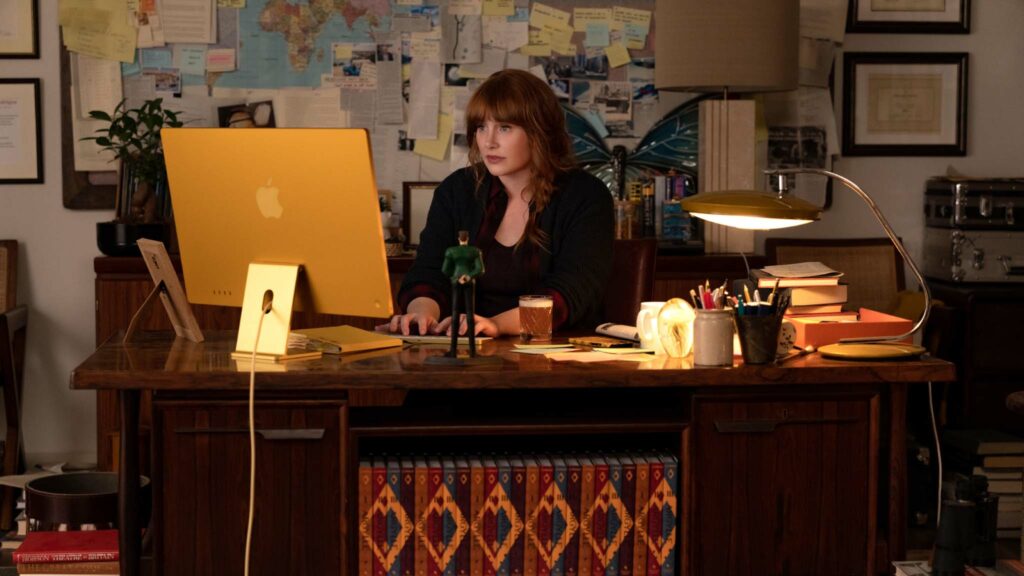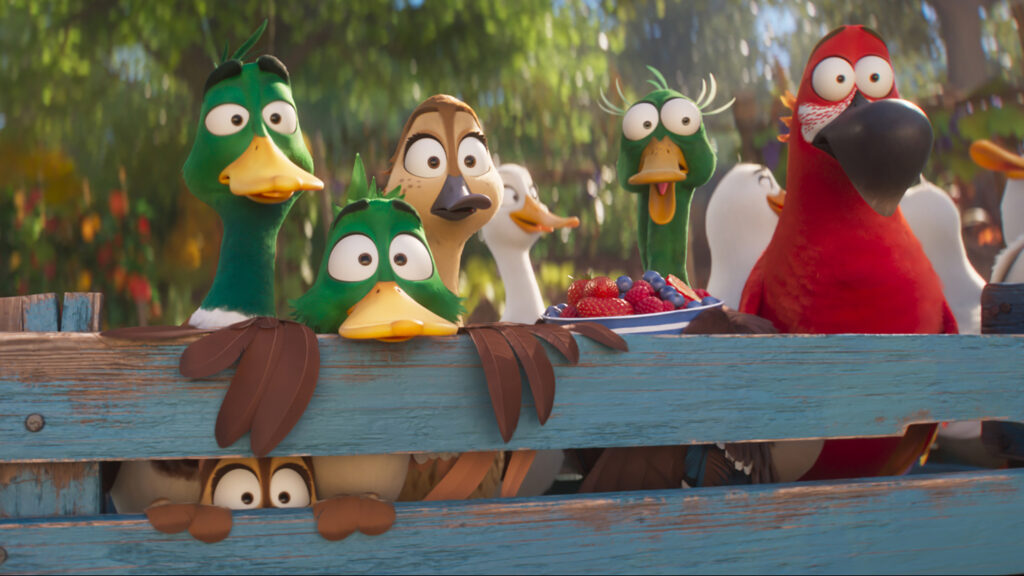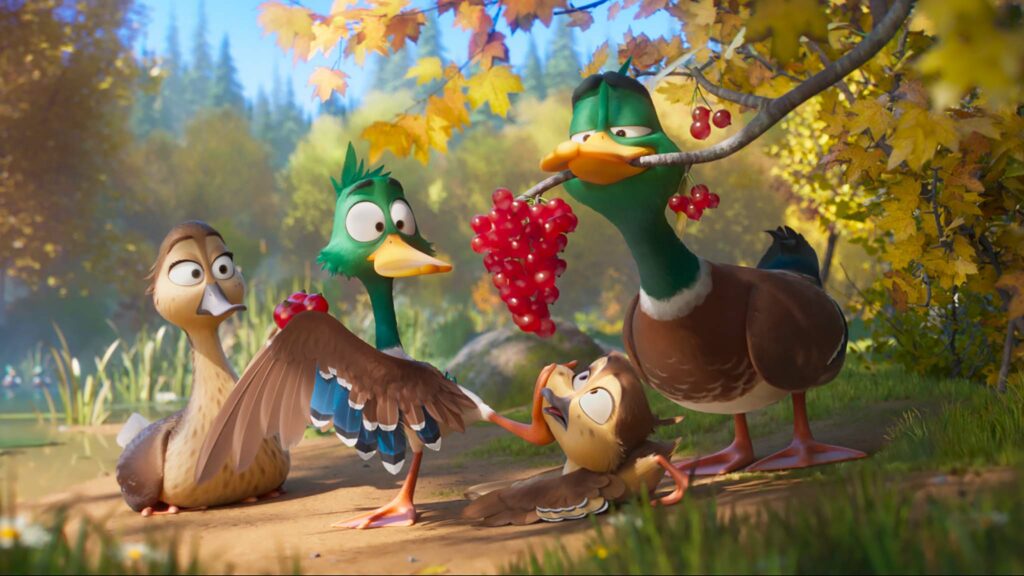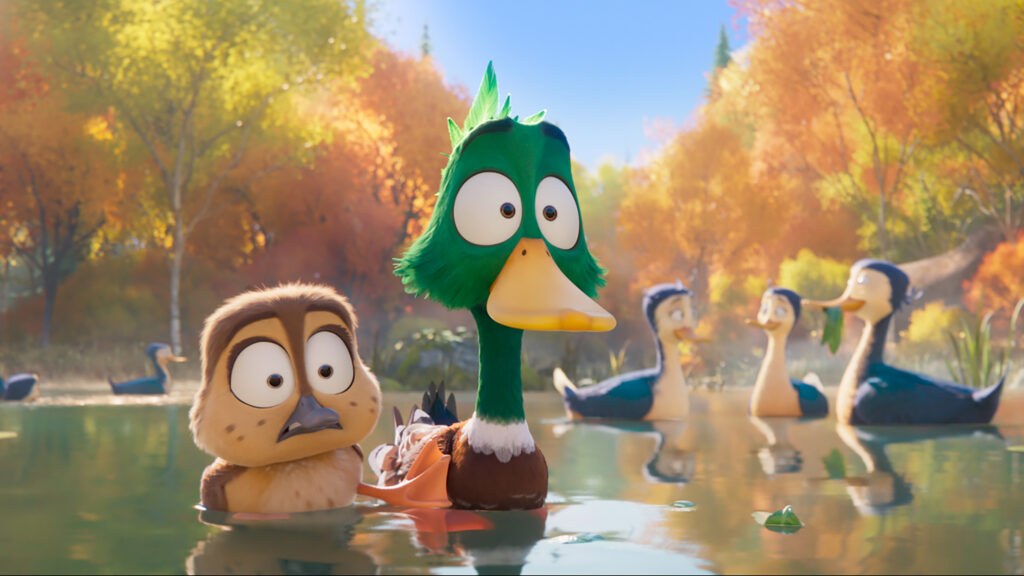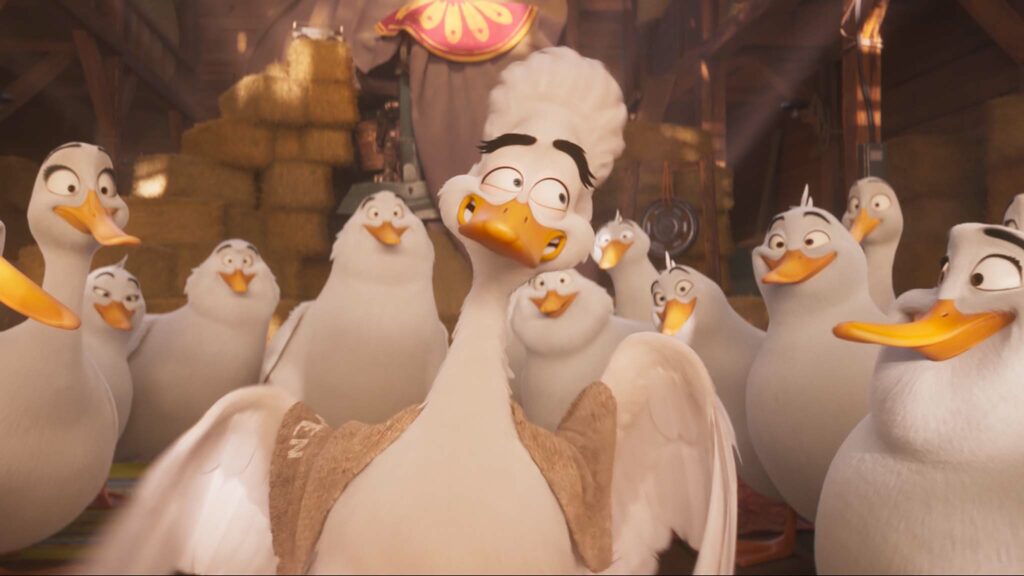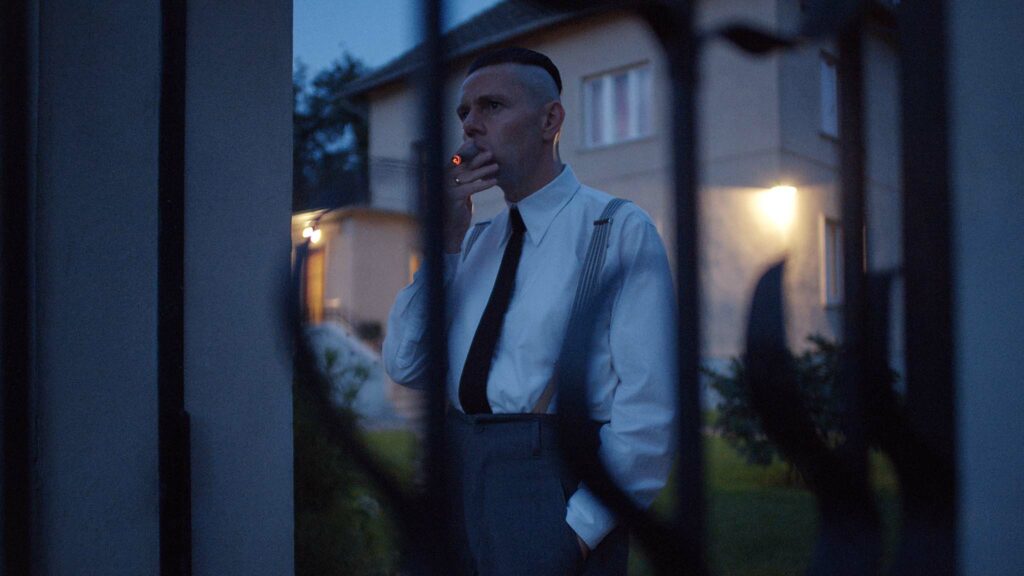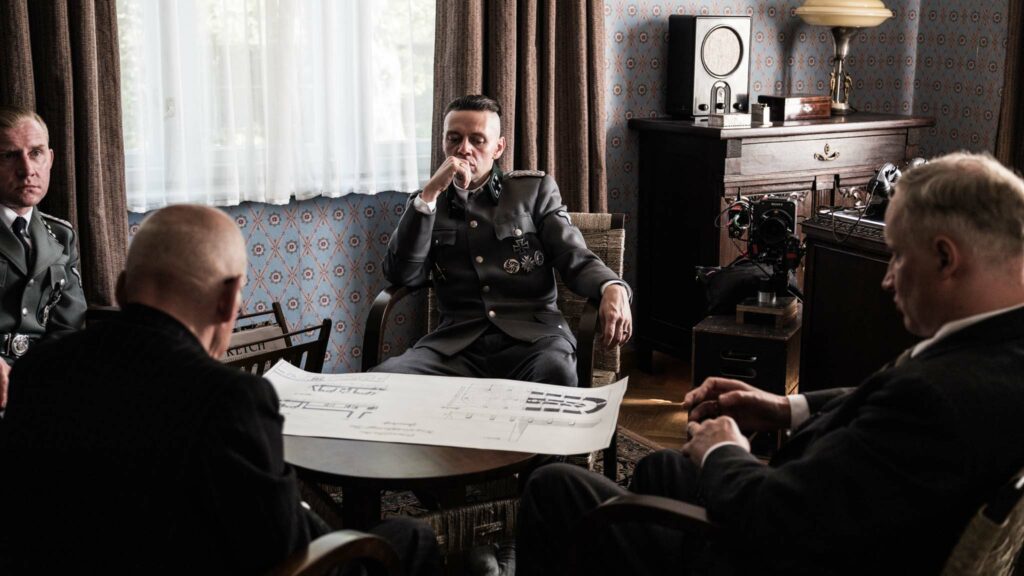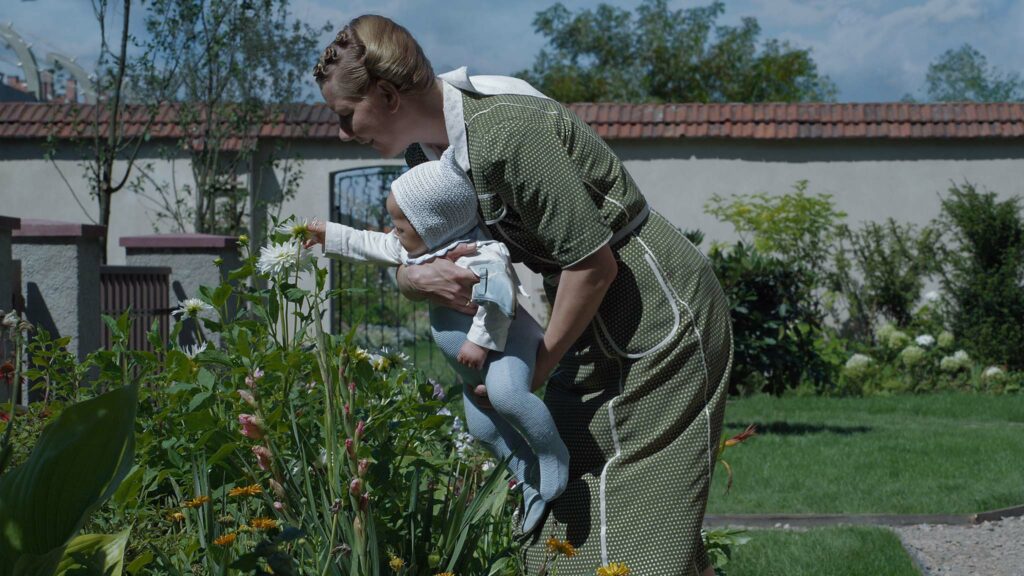Comedy
American Fiction (15)
Review: Truth and fiction repeatedly swap places in writer-director Cord Jefferson’s hilarious and heartfelt study of the creative process, glimpsed through the spectacles of a frustrated academic, who is repeatedly told by publishers that his books aren’t “black enough”. His enraged response – an outlandish work of fiction crammed to bursting with garish racial stereotypes – sets in motion a winning comedy drama, which pokes fun at white guilt, overly zealous political correctness and the furious tug of war between authenticity and commercial viability.
Jeffrey Wright is deservedly Oscar-nominated for his heart-on-sleeve lead performance as a writer raging against an imbalanced system. He visibly relishes the zinging dialogue in Jefferson’s script adapted from Percival Everett’s 2001 novel Erasure, beginning with a stinging rebuke to a pompous college lecturer who boasts that he has written three books in quick succession. “The speed with which you write only proves that good things take time,” coolly retorts Wright. Jefferson doesn’t rush character development or messy personal relationships, eliciting a wonderful supporting performance from fellow Oscar nominee Sterling K Brown as a plastic surgeon in the throes of embracing his sexual identity.
We first encounter Los Angeles-based writer and professor Thelonious “Monk” Ellison (Wright) as he is strongly urged by colleagues to take a leave of absence after clashing with a student about the use of the N word in a book’s title. Monk bristles with indignation during a subsequent visit to a book festival in Boston, where author Sintara Golden (Issa Rae) is feted for her debut novel We’s Lives In Da Ghetto, and frustration boils over in a book store when Monk discovers his work has been consigned to the African-American Studies section. His anger is targeted at a laptop keyboard and he churns out a soulless manuscript, My Pafology, under the pen name of ex-con Stagg R Leigh.
Unthinkably, a publishing house offers 750,000 dollars for a book that Monk spewed out as a joke. “Now it’s the most lucrative joke you’ve ever told,” chortles his agent (John Ortiz). Hype around the book intensifies and Monk’s unease impacts potential romance with lawyer Coraline (Erika Alexander) and concerns about his ailing mother Agnes (Leslie Uggams), which necessitate input from estranged brother Cliff (Brown).
Fittingly, not everything is black and white in American Fiction, which sparks uncomfortable but necessary discussion about how far attitudes have changed following global movements to address diversity and inclusion. The ensemble cast is excellent and Jefferson strikes a pleasing balance between humour and anguish. “This family’ll break your heart,” Cliff warns Coraline. Jefferson’s picture accomplishes that feat, particularly in scenes where Monk acknowledges he is gradually losing his mother to Alzheimer’s. That’s not an ending any writer would willingly choose.
Find American Fiction in the cinemas
Action
Argylle (12A)
Review: The human skull is shockingly brittle. That’s the takeaway learning from director Matthew Vaughn’s action-packed spy caper, which is intended as the opening chapter of a rumbustious new universe populated by daredevil secret agents who will eventually rub shoulders with the debonair Kingsman. It’s unclear how two worlds might collide (a post-credits tease lays the narrative groundwork) but Argylle is a satisfying if uneven standalone mission that shares creative DNA with Vaughn’s previous forays into the shadowy world of global espionage.
He delivers trademark slam-bang thrills with gusto, evidenced by an outlandish opening sequence replete with discofied dance sequence. For all its swagger and strut, something doesn’t click for me in the opening 90 minutes before the slickest stunt sequence you’ll see all year. I can’t quite put my finger on that missing ingredient. It’s like biting into the most delicious doughnut and only finding a dollop of luscious jam in the final mouthfuls.
A breathlessly paced prologue introduces us to globe-trotting operative Argylle (Henry Cavill) and his associates – muscle man Wyatt (John Cena) and spunky field technician Keira (Ariana DeBose) – on the trail of seductive terrorist-for-hire Lagrange (pop siren Dua Lipa). These larger-than-life characters are the creations of reclusive novelist Elly Conway (Bryce Dallas Howard), who has just completed the manuscript for the fifth Argylle book. She is obsessed with her work and often daydreams about the secret agent.
Elly elicits feedback on the next book from her mother Ruth (Catherine O’Hara), who bluntly suggests an in-person brainstorming session to remedy a problematic final chapter. Ruth needles her daughter about nurturing a meaningful relationship with someone other than her pet cat Alfie. “What is the point of success if you have no one to enjoy it with?” the matriarch urges. During a cross-country train journey, fiction bleeds into reality when scruffy spy Aidan (Sam Rockwell) rescues Elly from knife-wielding assassins, who have been ordered to kill the writer because her bestsellers predict real-life global espionage perpetrated by the diabolical Division. To stay alive, Elly places her trust in Aidan and former CIA deputy director Alfred Solomon (Samuel L Jackson).
Argylle fires on all cylinders from the moment Elly shakes waking dreams of her literary hero including some adrenaline-pumping delirium set to the soaring vocals of X Factor winner Leona Lewis. Before then, Jason Fuchs’s script twists and turns furiously like a cornered rattlesnake. Howard and Rockwell catalyse an adorable on-screen partnership while Cavill reminds the producers of the Bond franchise that he’s available to sip martinis even with a 1980s flattop haircut borrowed from Dolph Lundgren’s brutish Soviet Union boxer in Rocky IV. For prolonged stretches, Vaughn’s picture underwhelms but he ends on a giddy high which bodes well for two proposed sequels.
Find Argylle in the cinemas
Animation
Migration (U)
Review: Films of a feather merge together in Migration, a predictable but feelgood computer-animated odyssey directed by Benjamin Renner and co-directed by Guylo Homsy, which nests in some of the same places as Chicken Run and Rio. Running battles between resourceful mallards and a menacing chef, whose house speciality is duck a l’orange, bear striking similarities to the fowl play of Aardman Animation’s stop-motion farmer Mrs Tweedy. Aerial acrobatics above a fluffy cloud line glide in the slipstream of How To Train Your Dragon (coincidentally, composer John Powell scores both films) and a baby duckling’s weaponised cuteness borrows from the playbooks of Shrek’s Puss In Boots and excitable Agnes in Despicable Me. Meanwhile, the duck family’s unplanned arrival in fog-shrouded New York City slaloms in terror between skyscraper giants to conjure fond memories of a similar sequence in the charming 1996 live-action feature Fly Away Home.
Mike White, Emmy Award-winning screenwriter of The White Lotus, brings some of his sardonic humour to a ducks-out-of-water script that repeatedly clips its own tail feathers as it deals with cross-generational strife, self-doubt and actor Keegan-Michael Key’s thick Jamaican accent. That biting wit is most evident in marital discord between an anxiety-crippled mallard (voiced by Kumail Nanjiani) and his wife (Elizabeth Banks), and a surprisingly dark interlude with a great blue heron (Carol Kane) who jokes about gobbling up the couple’s cherubic offspring.
Scaredy-duck Mack (Nanjiani) spins nightmarish bedtime stories to educate his two children, Dax (Caspar Jennings) and Gwen (Tresi Gazal), about the perils of straying from the comfort of Moose Head Pond. Mack’s loyal and quick-witted wife Pam (Banks) yearns for new horizons but she appears powerless to prevent Max from crushing the ducklings’ adventurous spirits and her own dreams. “I don’t want to miss out on life because you are afraid to leave this pond,” she laments. In response, Mack organises a spontaneous migration south from leafy New England to Jamaica.
“I wanna go where they make jam!” whoops Gwen, leveraging her wide-eyed innocence and adorability to persuade curmudgeonly uncle Dan (Danny DeVito) to join the family expedition. Trusting his rusty internal compass, Mack takes flight with his clan, bound for sunnier climes. Changeable weather conditions propel the flock off course and the ducks rely on the kindness of the quirky characters they encounter along the way including Central Park pigeon gang leader Chump (Awkwafina), caged macaw Delroy (Michael Key) and yoga-loving duck GooGoo (David Mitchell).
Migration signals its heart-warming intent before Mack and co are airborne, loudly espousing the pursuit of sky-high dreams even if that means an occasional emergency landing to regroup. The sparkling ensemble cast coasts along on autopilot for most of the flight with almost no dramatic turbulence before a safe landing in tropical paradise.
Find Migration in the cinemas
Drama
The Zone Of Interest (12A)
Review: Taking its title from the euphemistic phrase used by Nazi officers to refer to the immediate area surrounding the Auschwitz concentration camp, The Zone Of Interest is an unsettling, experimental portrait of Nazi commandant Rudolf Hoss that humanises one of the men responsible for Hitler’s Final Solution in German-occupied Poland. Jewish filmmaker and artist Jonathan Glazer spent 10 years nurturing the project to fruition, gaining permission to recreate the Hoss family’s two-storey stucco villa from archive photographs just outside the camp’s perimeter.
Attention to detail is evident in every disorienting frame, intentionally focusing on the mundane day-to-day life of the commandant and his kin while atrocities unfold out of sight but not out of mind. Immersive sound design conveys gun shots and screams on the other side of walls adorned with coils of barbed wire, Hoss children frolic in a swimming pool while plumes of smoke chug above treetops in the distance from a train carrying new arrivals, and crematorium chimneys cast a red glow through the night.
Atrocities are never depicted explicitly on screen and Glazer’s camera ventures inside the camp just once, fixated on the commandant’s face as black smoke swirls around him. The script orients us with a sickening jolt at roughly the midway point when the Hoss’s house-proud wife jokes that her husband calls her “the queen of Auschwitz” then giggles at her apparent good fortune.
Commandant Rudolf Hoss (Christian Friedel) and wife Hedwig (Sandra Huller) raise their five children, Klaus (Johann Karthaus), Heidetraud (Lilli Falk), Inge-Brigitt (Nele Ahrensmeier), Hans-Jurgen (Luis Noah Witte) and baby Annegret, less than 100 metres from the walls of the camp. Local women help Hedwig to run the household and in one quietly chilling scene, the wife rewards their diligence by allowing them to sift through a sack of silk lingerie taken from newly arrived prisoners. “Choose something you like,” she coos matter of factly.
Cruelty bubbles beneath the surface and Huller’s stunning performance captures the icy detachment of her matriarch, who reacts angrily to news that Rudolf is being transferred to Oranienburg and she may have to relinquish her kingdom. A meek housemaid bears the brunt of one threat. “I could have my husband spread your ashes across the fields of Babice,” whispers Hedwig between mouthfuls of cooked breakfast.
Nominated for five Oscars including Best Picture and Best Director, The Zone Of Interest is episodic in structure, punctuated by nightmarish sequences captured using thermal night vision. Glazer’s impeccable direction reminds us of the Nazi death machine’s horrifying efficiency and composer Mica Levi’s low, rumbling score intensifies the creeping dread. Ignoring trauma offers no escape.
Find The Zone Of Interest in the cinemas


